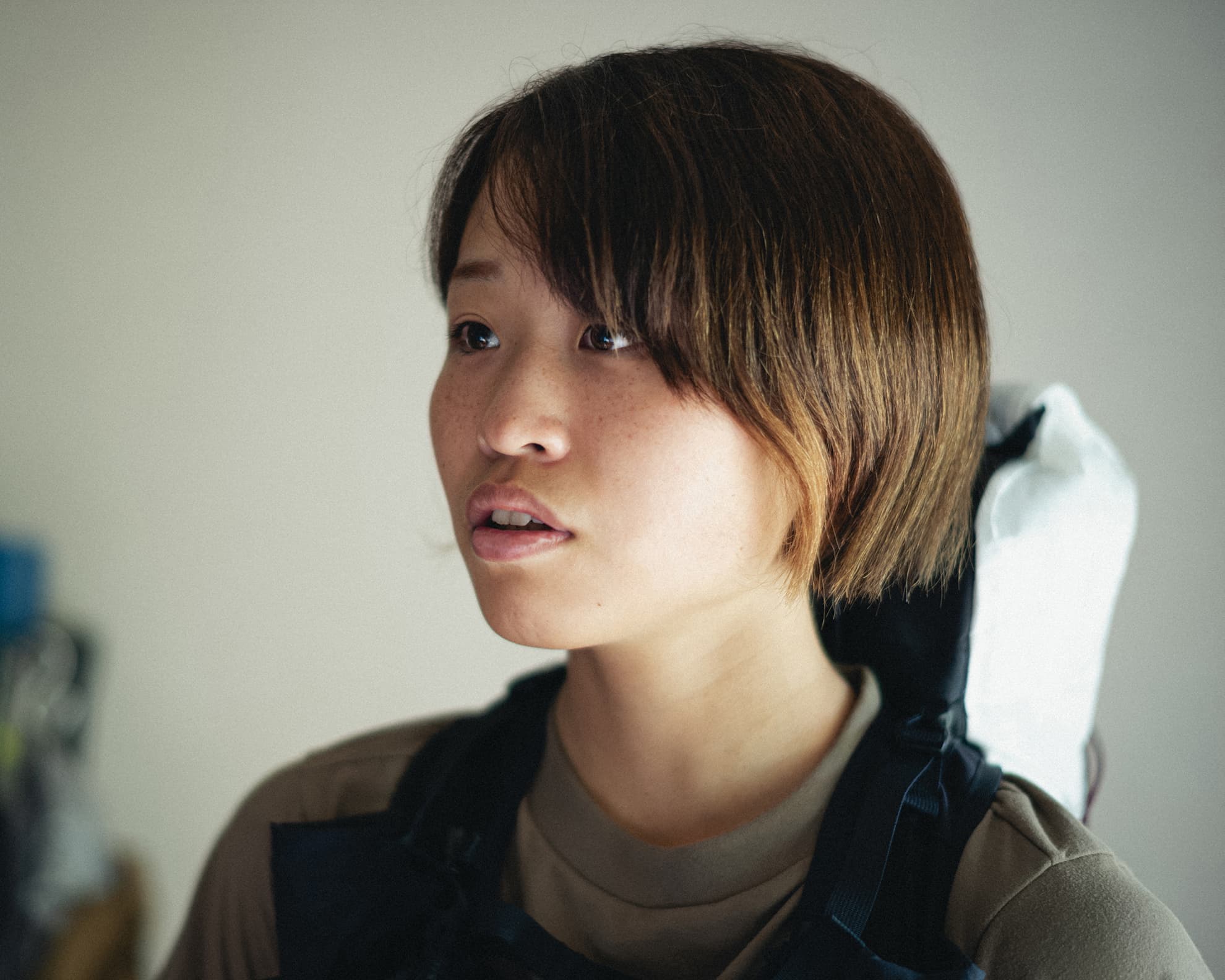
The motivation
to run 100 miles
as an ultra-distance specialist after emerging on
the trail running scene a few years ago.
In May this year,
she finished third and earned the “New Hero” award
at the Ultra-Trail Mt. Fuji competition.
She’s also the two-time reigning champion and
course-record holder at the OSJ Koumi 100.
In this interview, Chi-chan traces her roots in the sport,
her “accidental” discovery of 100-mile racing,
and what motivates her to compete — and to win.
Translation = Yumi Kawamura

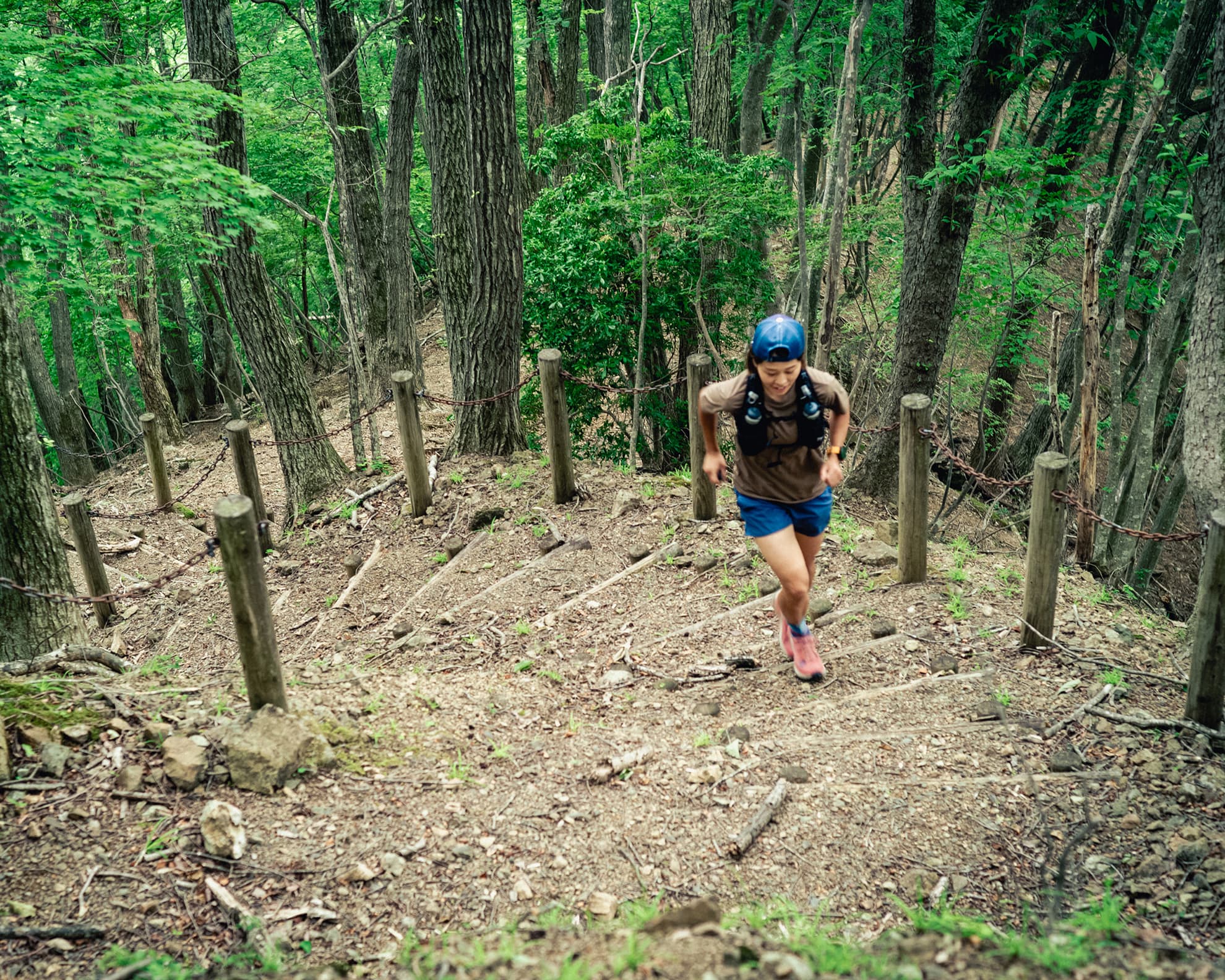
“I am going to finish in less than nine hours and beat the entire team,” Ofuchi promised herself, as she trained in the Nishikan mountains, western Niigata prefecture.
In November 2020, she received an invitation to join TOKIMINGO, a Niigata-based trail running team, on one condition — the 24-year-old had to complete a demanding 40-kilometer traverse of the Nishikan mountain range in under 10 hours. The course boasts 4,000 meters of elevation gain. Ten hours is the qualifying standard for females, she was told, versus nine hours for males.
“Well, I was actually the only one required to take the qualification test,” Chi-chan laughs, recalling the experience.
The 90-minute drive to the Nishikan trailhead from her hometown didn’t deter Chi-chan from hitting the mountains regularly to train over the next five months. She wanted to be ready for the test; she wanted to win.
In April 2021, she completed the traverse with the second-fastest time ever recorded by TOKIMINGO, earning the coveted team uniform.
“I lost to the team’s mountain king by 17 minutes,” Chi-chan relates with a wry smile. “I hate losing.”
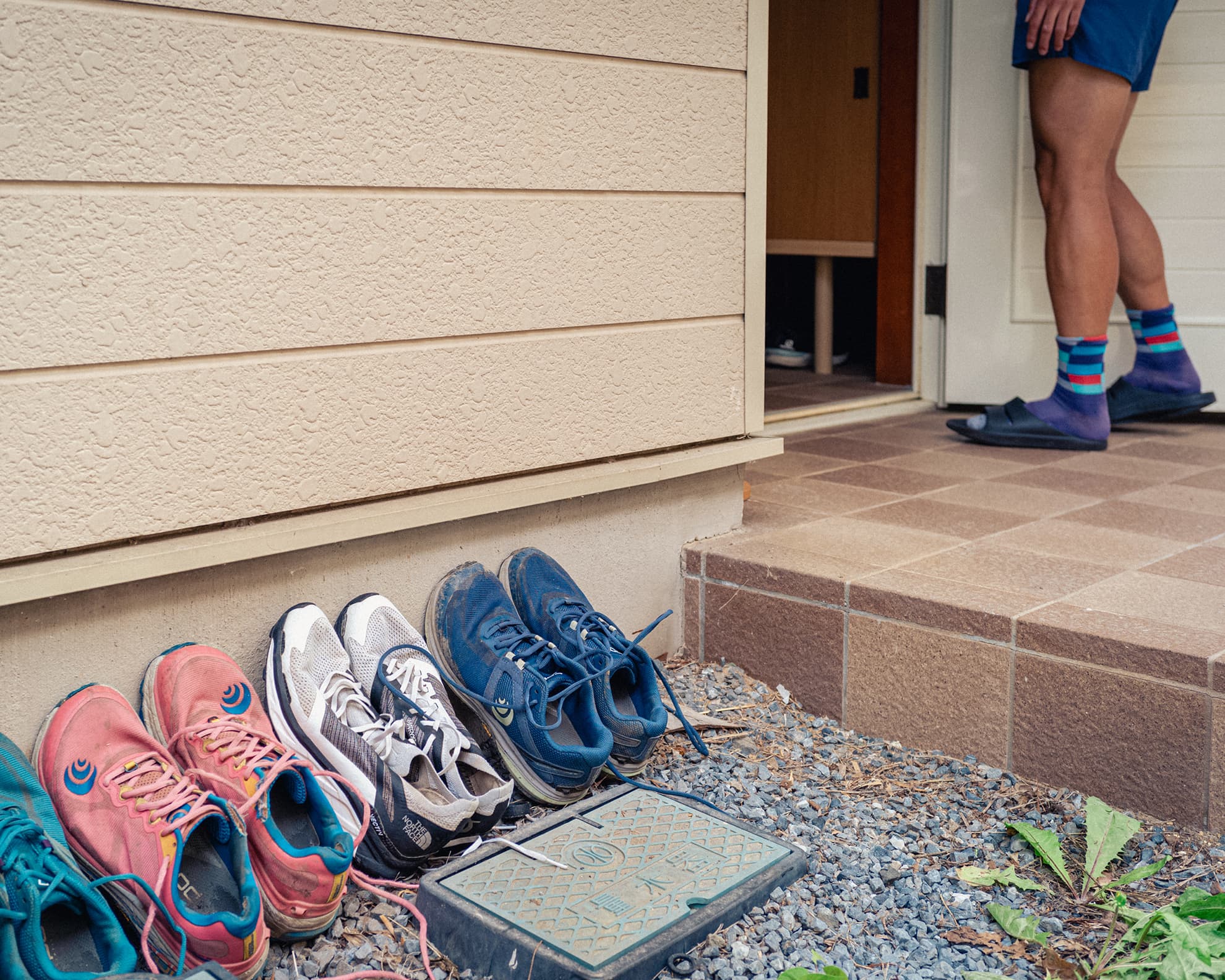
Chi-chan has been running for as long as she can remember. She and her twin brother suffered from asthma, and their parents encouraged them to exercise and grow stronger.
“Our nursery school was about two kilometers away,” she explains. “Instead of driving us there, my mum would lead us on a bicycle as we ran after her every day. That was the start.”
The seed her parents planted grew. Chi-chan ran in summer, and skied cross-country in winter. Train, race, repeat all through junior high school. She loved both sports, but her track coach said she returned from every ski season with exaggerated arm swings that mimicked a skier more than a runner. She felt the urge to pick between the two when she entered high school, but wasn’t sure which to pursue.
It would be easier to compete in national championships as a skier, but running was the more accessible option. During junior high she joined training sessions with the local fire department’s relay team, doing long runs and hill repeats with the firefighters and benefitting from their professional coaching. In the end, her twin brother helped her choose.
“My brother is stronger on skis. But at long-distance running, I always won,” Chi-chan grins.
Now that she had chosen to run, Chi-chan envisioned herself as a college athlete or joining a company as a sponsored track competitor. But first a challenge loomed large — at school meets her rivals seemed to be improving much more quickly, and running faster times. “It must be their training volume,” she thought to herself. “I need to run more.”
Team training started before 5pm and continued until 7. The runners shared the track with baseball and soccer athletes. Chi-chan would finish the group runs, and then do workouts she devised for herself until 9pm. She liked when the track was quiet and balls were not flying around. She typically ran 20 km (12.4 miles) at a pace of 4 min/km (6.4 min/mi) on any given day.
“To me, warm up finished at 7pm,” Chi-chan recalled. “Training started after.”
Excessive training took a toll on her 165 cm frame. By senior year in high school, she had developed anorexia and weighed only 38 kg (84 lbs).
“Somehow I could still move for a long period of time, but I lost all my power,” she says. “I overdid it.”
Now, at 27 years old, she stands 170 cm tall and weighs 56 kg when in peak form.
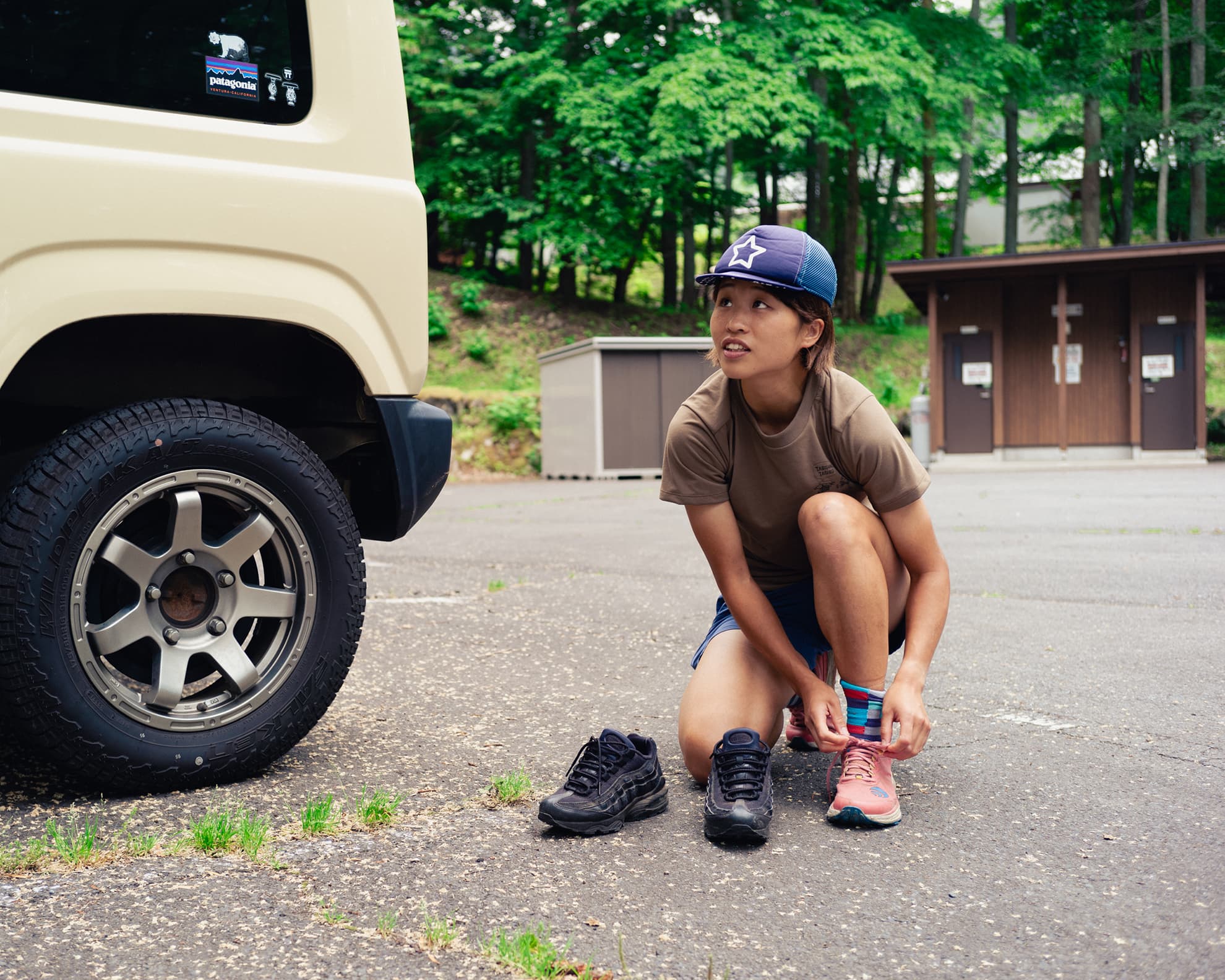
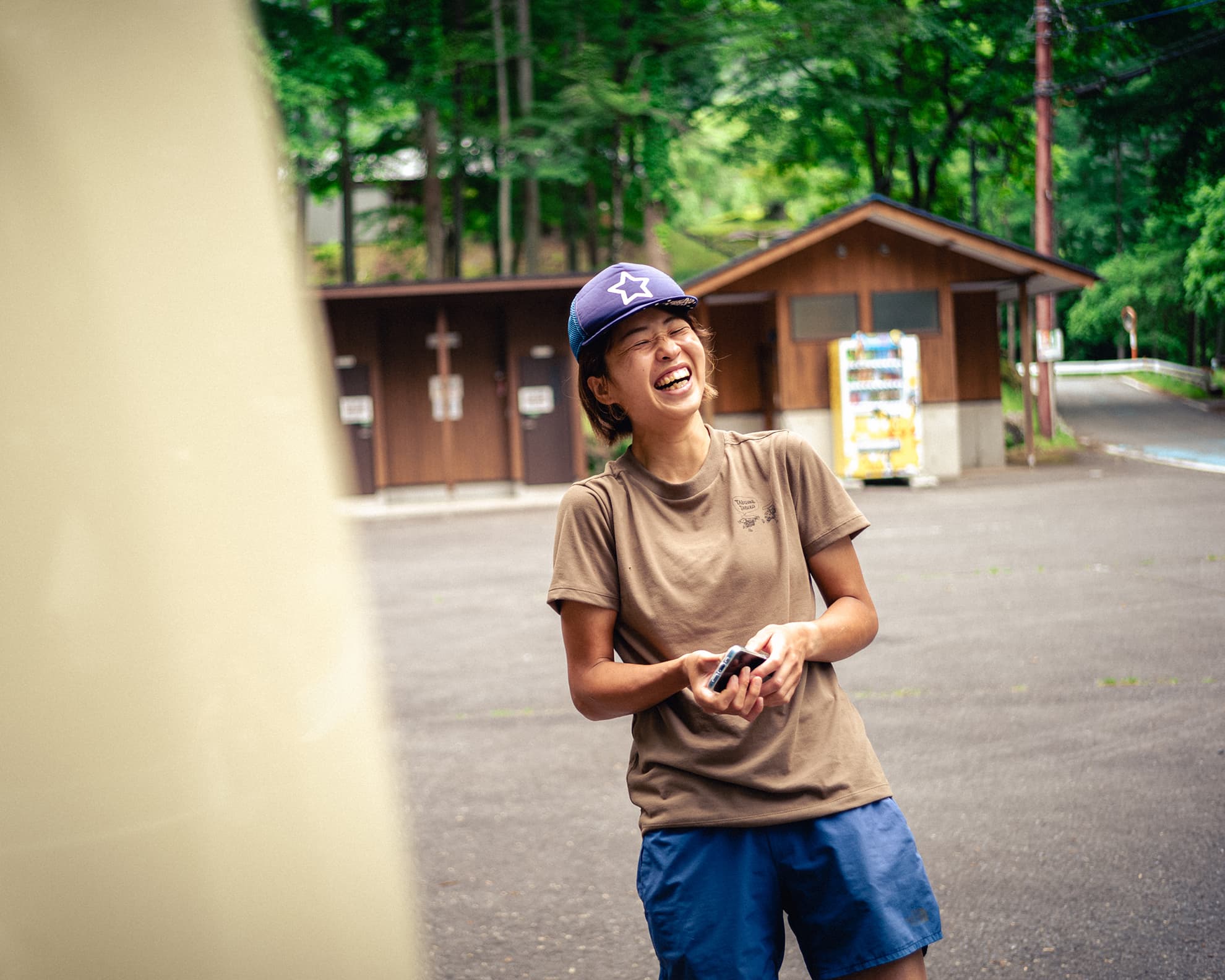
I am not the one winning,
as long as my team wins.”
I am not the one winning,
as long as my team wins.”
Chi-chan struggled at first in college. She had won an athletic scholarship to Tohoku Fukushi University in Sendai, and expected to perform and win for the team at college level. But her body said enough was enough, and injuries left her barely able to train, let alone compete.
“It would have been easier if I was responsible only to myself. But college track is a team sport. What’s the point of coming here if I contribute nothing to the team?”
The answer came when her fitness gradually returned. She took on the role of pacemaker for her teammates. Her responsibility was to lead a pack precisely to the second on the opening laps, then exit and prepare to lead another group at a different pace.
“I got so good at it that I could run at every pace without looking at my watch.”
She also served as team manager, helping the others register for competitions and dealing with race organizers. It made her recognize there are many people working behind the scenes to support runners. By her third year in college, she had mostly recovered from injuries, but she had also settled into her new roles.
“It’s ok that I am not the one winning, as long as my team wins,” says Chi-chan, who left few traces in college record books.
For the first time, she was running for others.
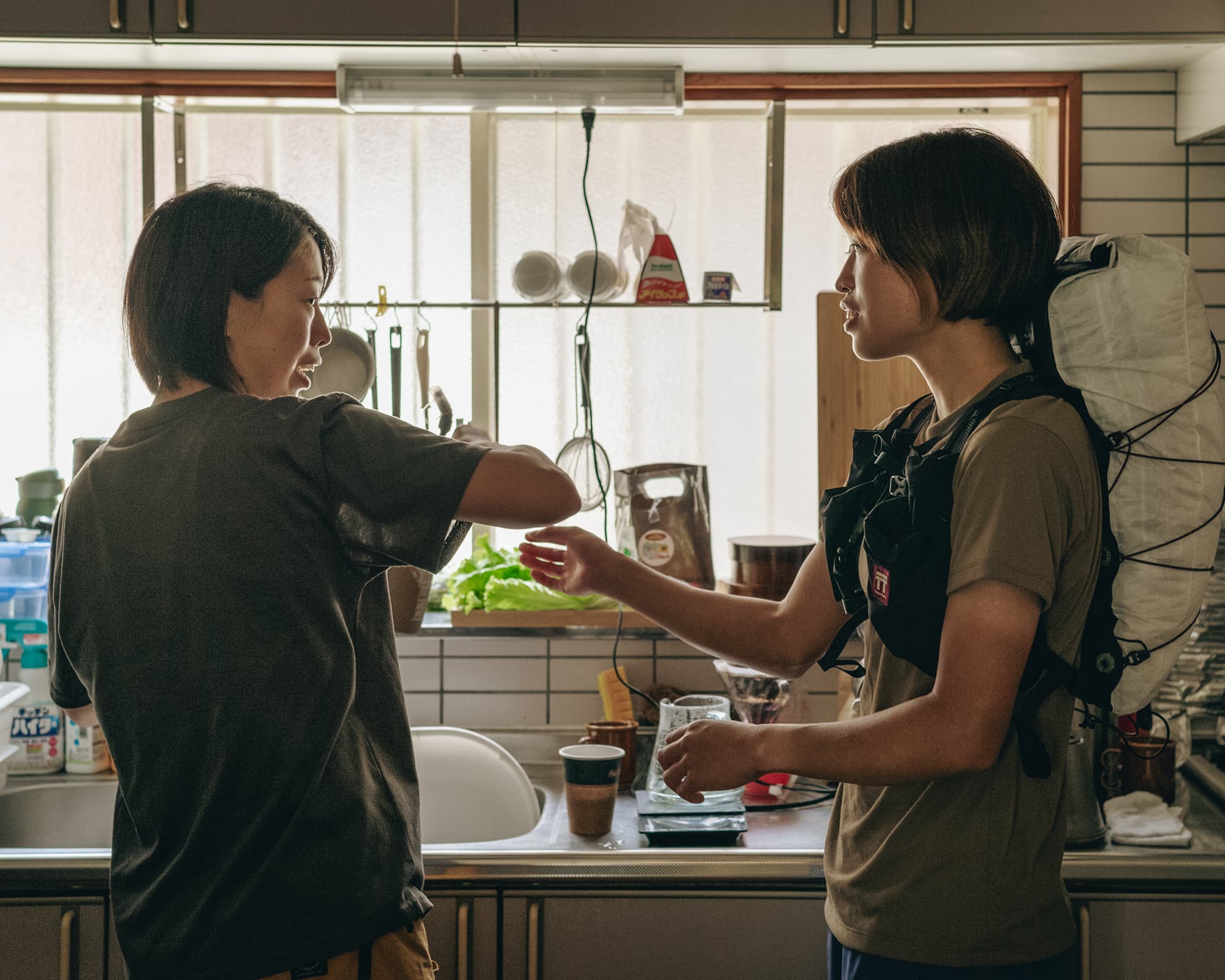
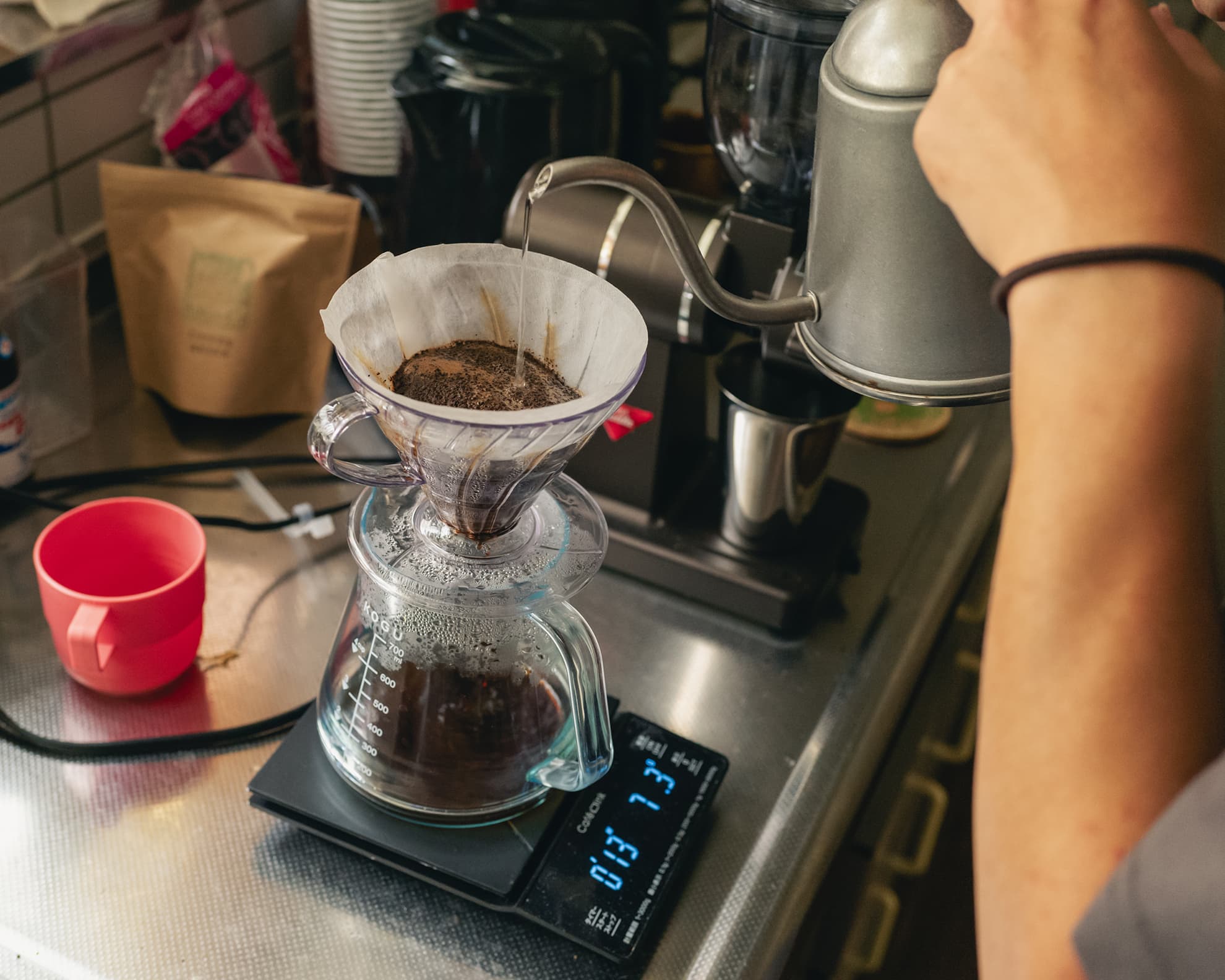
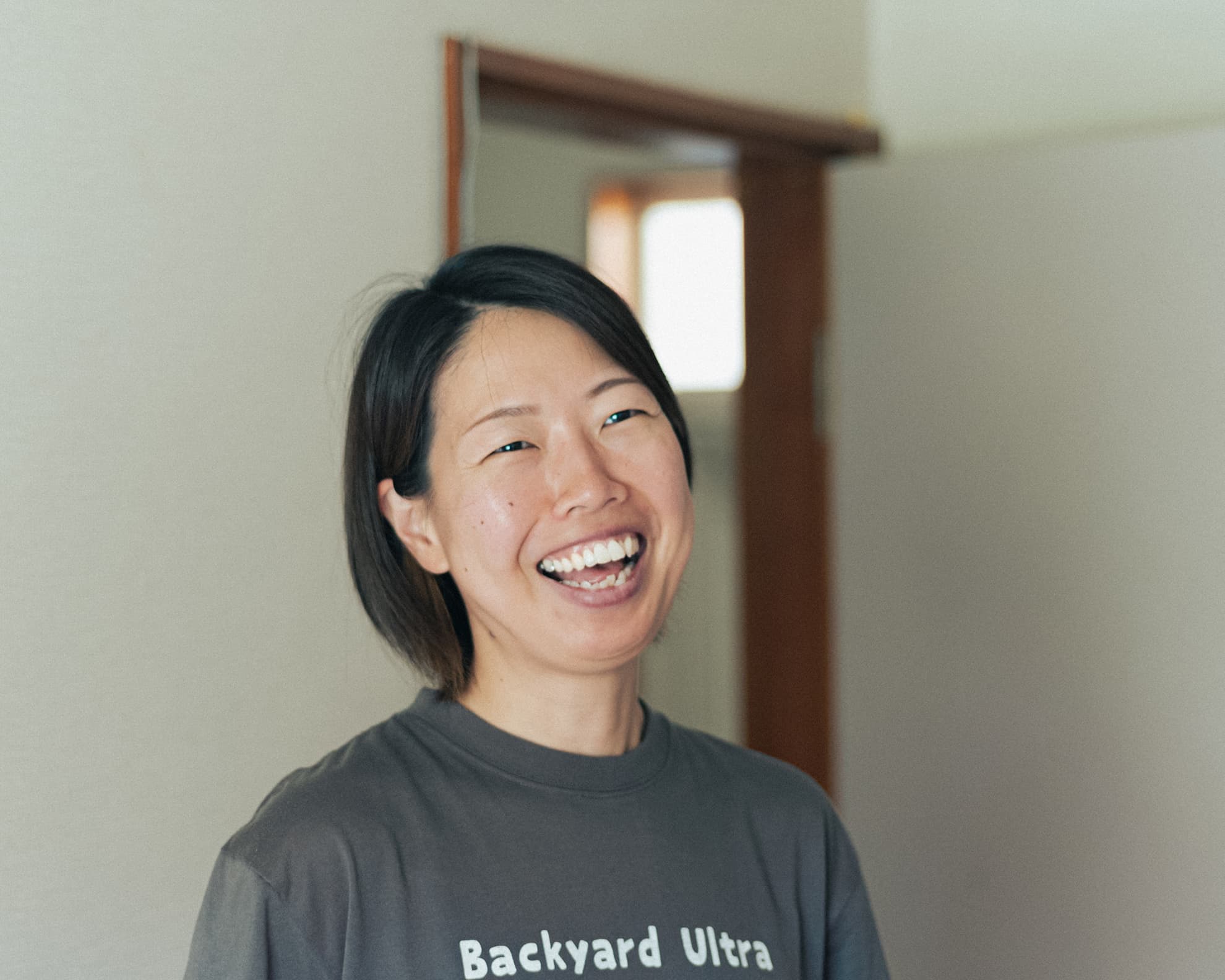
After graduating with a social welfare degree, Ofuchi worked at a nursing home and returned to running casually. In June 2019 she met a group of runners at the Echigo Country Trail race in Nagaoka, a city famous for its annual fireworks festival. The runners were all outfitted in eye-catching blue T-shirts and matching shorts, emblazoned with images of the crested ibis (“toki” in Japanese), flamingos and fireworks.
The group was called TOKIMINGO, she learned, and before long they invited Chi-chan to join their Wednesday evening training runs — not as a member, but as a guest. It would be two more years before she officially became a TOKIMINGO.
During those training runs, she met a fellow female runner named Madoka Aoki, also a Niigata native. According to Aoki, Chi-chan had little recollection of their early encounters.
“She kept saying ‘nice to meet you’ even though we had already met,” Aoki says, laughing.
“It was too dark at night and I couldn’t see your face,” Chi-chan rebuts.
A few months later in November, they both signed up for Hachikoku 100, a local event, organized by the troupe. In broad daylight, Chi-chan greeted Aoki.
“Nice to meet you,” said Chi-chan.
This time, she finally remembered.
Chi-chan had little idea how long 100 miles is. She thought the imperial unit wasn’t too different from kilometer, the metric unit she was familiar with. As a seasoned track runner who knows every inch of the straights and bends by heart, the idea of studying the race course didn’t come across her mind either.
The Hachikoku course was a 17-km loop between Nagaoka and Kashiwazaki cities, with an elevation gain of 900 meters. The athletes were to run it nine times.
“100.”
It was the first time Chi-chan saw a three-digit number on her GPS watch. She’d completed 100 kilometers, but nobody had stopped running. She asked a fellow competitor where the race finished, only to be told there were 60 kilometers left to run.
“It’s only then that I realized 100 miles equals 160 kilometers,” she says.
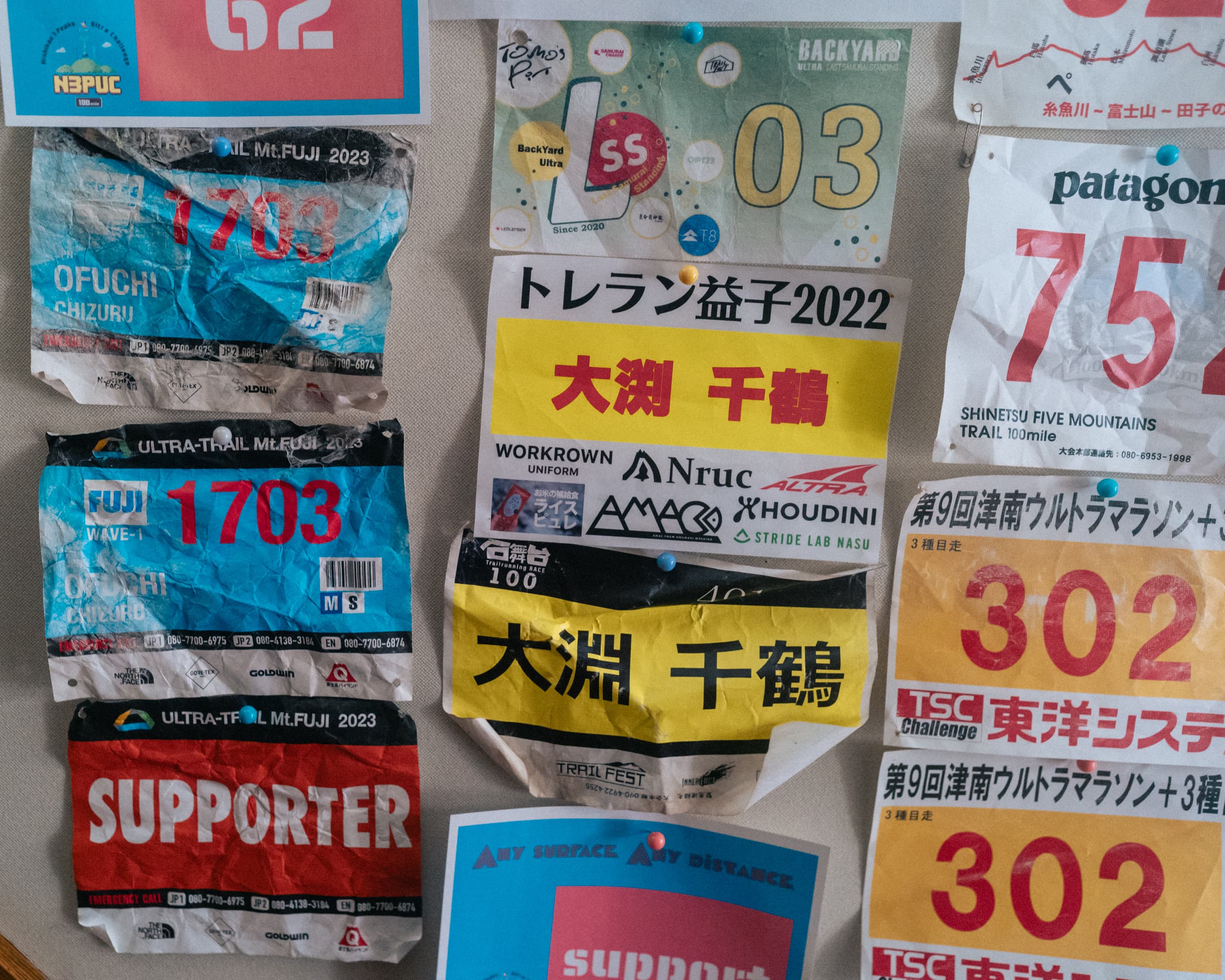
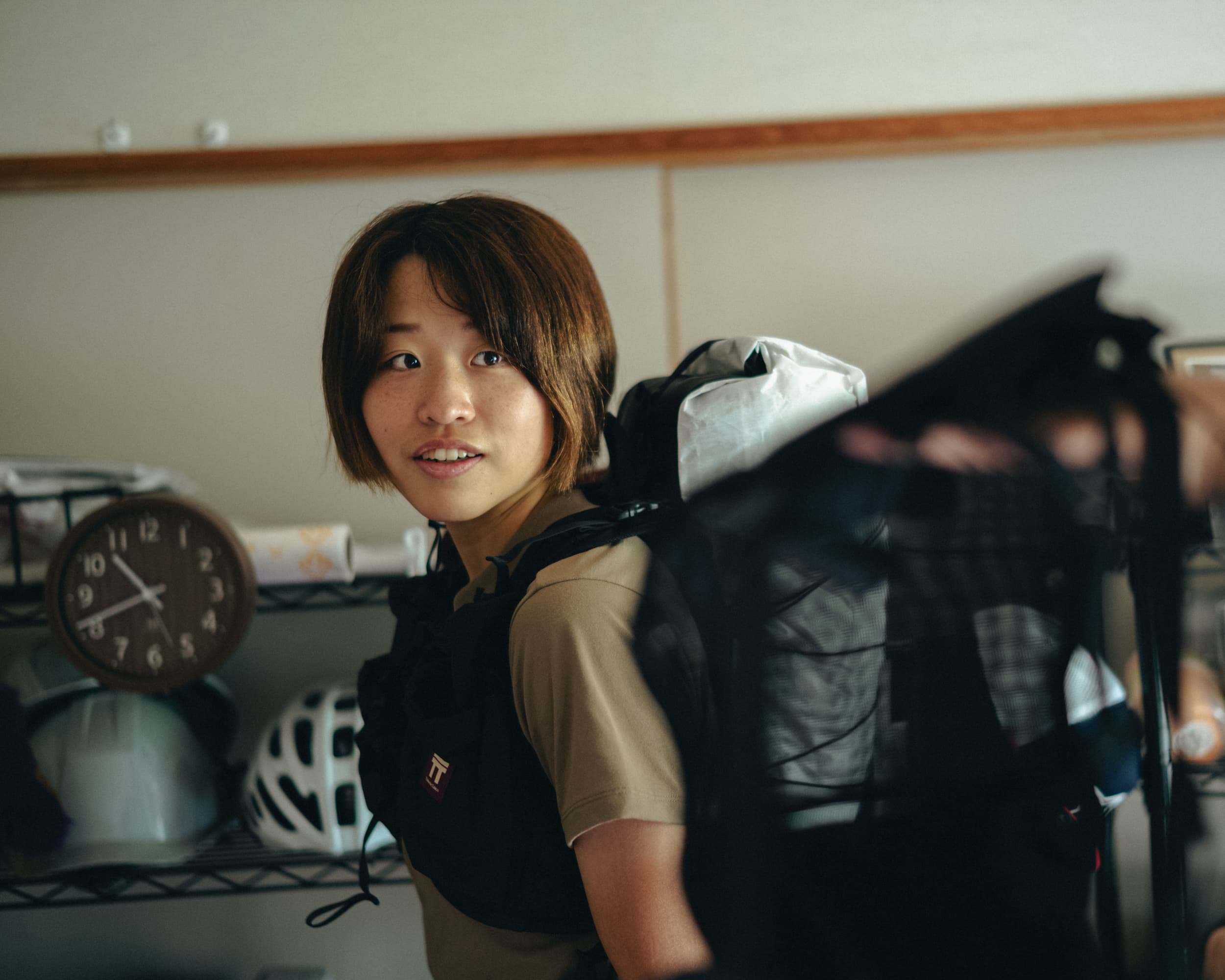


On a cloudy, humid morning in june, I met Chi-chan and Aoki at their apartment in Ueno, southwesternmost of Gunma Prefecture. Chi-chan worked at a local food processor during the week to learn the trade. Disliking the sugary sports gels endurance racers commonly use, she wants to make her own — “with real food” — in the future.
After the Hachikoku 100, Chi-chan left her job to pursue a career as a professional trail runner. In 2021, she won the OSJ Koumi 100, setting a female course record. A year later, as defending champion, she led the 175 km race from start to finish amid bad weather, finishing almost three hours ahead of her closest competitor.
Aoki also quit her stressful office job at an electronics manufacturer, and plans to open a cafe in Niigata. Meanwhile, she acts as Chi-chan’s de facto manager and crew supporter, driving between aid stations with food and equipment during races that often last more than a day. It is an endurance event for both of them.
“The big sister in me wants to make sure everything is alright,” says Aoki.
I met the two again a few weeks later at an event in Tochigi prefecture. They were in the process of moving back to Niigata together to plan their next steps. Nothing was set in stone, but it will certainly be outdoors, with a lot of running and coffee involved.
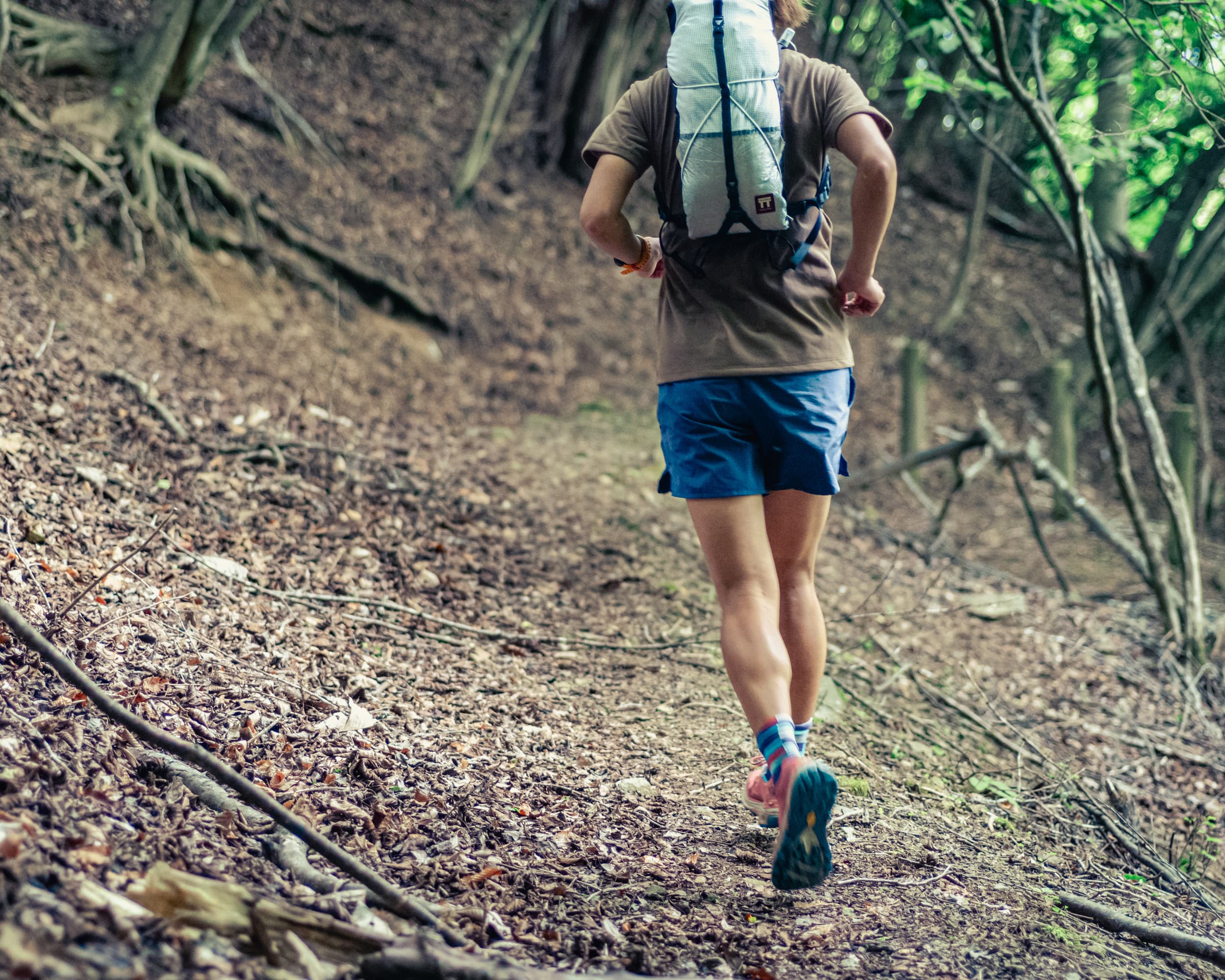
Chi-chan’s next big race is Shinetsu Five Mountains Trail in September. It is one of the most popular and competitive 100-mile races in Japan, along with Ultra-Trail Mt. Fuji in May, where she finished third.
I didn’t bother to ask what her goal is. She’d repeatedly said she “hates losing.” But I was curious what motivates her to run, and to run so far. The question took her back to her college days as a pacemaker and manager.
“For the people who come to support me, the people who make the races happen,” Chi-chan said. “They give me power, and I want to thank them through my running and tell them it’s all worth it.” L
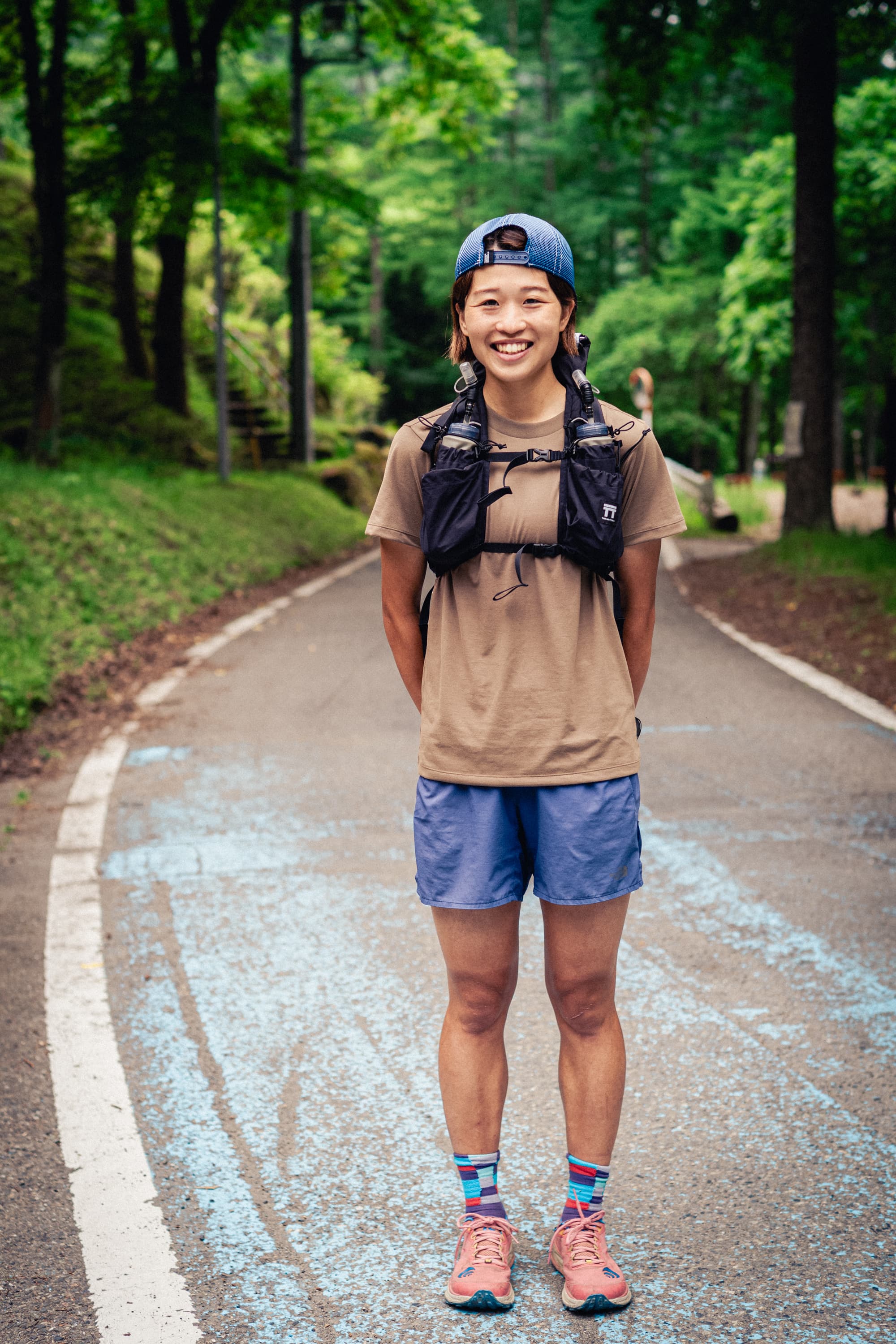
Chizuru Ofuchi
Ofuchi, born in 1996, is a trail runner from Ojiya city, Niigata Prefecture. She grew up experiencing various sports such as track and field (elementary school through college), cross-country skiing (elementary school through high school), and swimming (elementary school through junior high school). After graduating from college, she began participating in trail running races in earnest in 2021 after running the local race Hachikoku 100. Ofuchi graduated from the Faculty of Comprehensive Welfare, Tohoku Fukushi University. After working in welfare and forestry, she now works in the food-processing and tourism industries.
[Race results]
◎2019
Hachikoku 100
◎2021
OSJ KOUMI100 — Women's Champion
Backyard Ultra Last SAMURAI Standing 2021, Gunma — 32 hours, 214.592km
◎2022
Yarikan 12 hours Endurance & 100mile — 100mile, 2nd woman
Trans Honshu Zero-Fuji-Zero — Trans Honshu section, 317km, Finisher
Tsunan Ultra Trio — Winner
OSJ KOUMI100 — Women's Champion
UONUMA SKYRUN — Normal — 2nd woman
◎2023
N3PUC 50mile — Finished
ULTRA-TRAIL Mt. FUJI — "FUJI", 3rd woman, New Hero Award
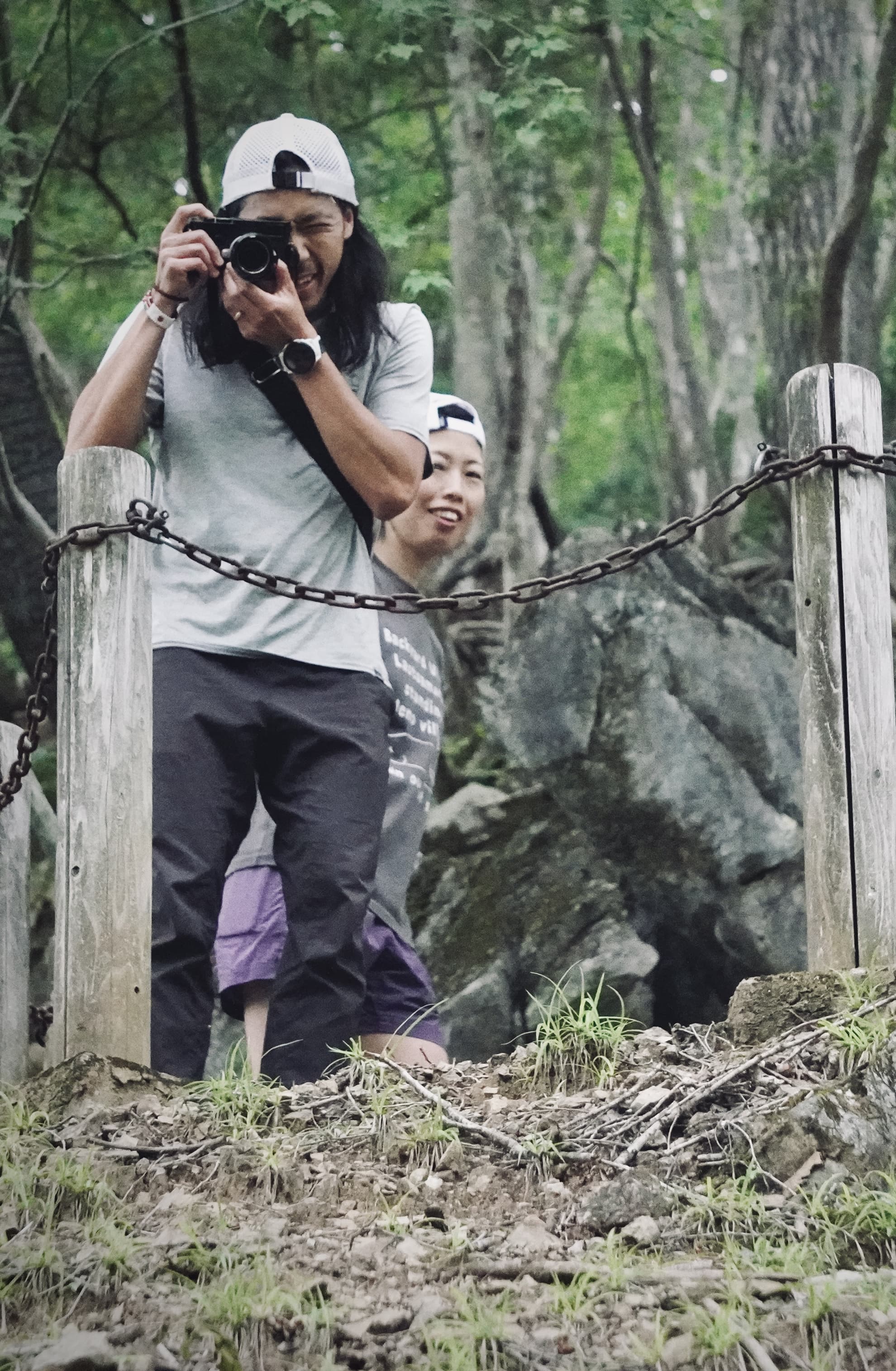
Marco Lui
Lui, born in 1985, is a design researcher, photographer and trail runner from Hong Kong. He currently lives in Kamakura (Kanagawa Prefecture) and Kamiyama (Tokushima Prefecture). After graduating from college with a journalism degree, he spent 10 years as a financial journalist in Hong Kong, Tokyo, and New York. In 2018, Lui returned to Japan and entered the world of design consulting. He became an independent design researcher during the pandemic in 2021, helping corporate clients with business and product development. He is also a photographer, a documentary filmmaker and the host of the KIKITE interview podcast. Lui fell in love with trail running in 2011 with the Mongolia Sunrise to Sunset 100k race, and made his debut in the 100-mile distance at Shinetsu Five Mountains Trail in 2022.
[Race results]
◎2018
Breakneck Point Trail Runs(New York State)42km
North Face Endurance Challenge(New York State)50mile
◎2019
Shinetsu Five Mountains Trail 110km
◎2022
Shinetsu Five Mountains Trail 100mile
Izu Trail Journey 70km
◎2023
Western States Endurance Run 100mile

